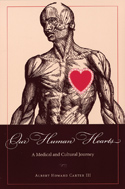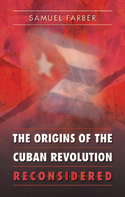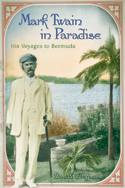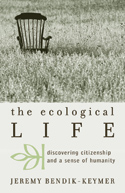|
||
      |
Peer Review ::
On the shelf
 Our
Human Hearts: A Medical and Cultural Journey, by Albert Howard Carter
III, AB’65, Kent State University Press, 2006. Across centuries and
cultures, the heart stood as a symbol of wisdom and the seat of the soul.
Modern medical technology allows scientists to venture inside, administering
drugs and performing life-saving procedures. In this account of four heart
patients’ experiences, social-medicine professor Carter looks at how
cardiology and culture interact.
Our
Human Hearts: A Medical and Cultural Journey, by Albert Howard Carter
III, AB’65, Kent State University Press, 2006. Across centuries and
cultures, the heart stood as a symbol of wisdom and the seat of the soul.
Modern medical technology allows scientists to venture inside, administering
drugs and performing life-saving procedures. In this account of four heart
patients’ experiences, social-medicine professor Carter looks at how
cardiology and culture interact.
Manhunt: The 12-Day Chase for Lincoln’s Killer, by James L. Swanson, AB’81, William Morrow, 2006. From April 14 to April 26, 1865, John Wilkes Booth thwarted government detectives, disappearing into Maryland swamps and Virginia forests. Drawing on archival materials, trial transcripts, and Lincoln’s own blood relics, Swanson recreates the chase and capture of one of America’s most notorious villains.
How the Moon Regained Her Shape, by Janet Heller, PhD’87, Sylvan Dell, 2006. When the sun insults the moon, the bullied party disappears from the sky, but then regains her self-confidence (and her shape) with the help of animal friends. Inspired by Native American folktales, this children’s book includes a “creative minds” section with educational information about the moon as well as crafts and games. Appropriate for ages six through ten.
 The
Origins of the Cuban Revolution, by Samuel Farber, AB’61, University
of North Carolina Press, 2006. Arguing that the economic and political structure
of early 20th-century Cuba conspired to push the country toward radical
change, Farber offers a new interpretation of the 1959 Cuban Revolution.
Using recently declassified U.S. and Soviet documents as well as narrative
Cuban literature, he investigates how an antidictatorial rebellion transformed
into full-scale social upheaval.
The
Origins of the Cuban Revolution, by Samuel Farber, AB’61, University
of North Carolina Press, 2006. Arguing that the economic and political structure
of early 20th-century Cuba conspired to push the country toward radical
change, Farber offers a new interpretation of the 1959 Cuban Revolution.
Using recently declassified U.S. and Soviet documents as well as narrative
Cuban literature, he investigates how an antidictatorial rebellion transformed
into full-scale social upheaval.
Workforce Crisis: How to Beat the Coming Shortage of Skills and Talent, by Tamara J. Erickson, AB’76, Ken Dychtwald, and Robert Morison, Harvard Business School Press, 2006. What do increasing longevity, declining birthrates, and baby boomers’ march toward retirement mean for today’s corporations? A chronic shortage of skilled workers to fuel the economy, say the authors. Examining demographic and labor trends, they offer solutions for dealing with the changing face of America’s workforce, such as leveraging mature workers’ company knowledge and creating loyalty among young employees.
 Nonverbal
Learning Disabilities, by Joseph Palombo, AM’59, W. W. Norton
& Company, 2006. Nonverbal learning disability (NLD) is a developmental
disorder that hinders a child’s perception, expression, and comprehension
of nonverbal cues. Such dysfunction, in turn, influences social interactions
and emotional processing. Clinical social worker Palombo introduces a therapeutic
approach to help children with NLD.
Nonverbal
Learning Disabilities, by Joseph Palombo, AM’59, W. W. Norton
& Company, 2006. Nonverbal learning disability (NLD) is a developmental
disorder that hinders a child’s perception, expression, and comprehension
of nonverbal cues. Such dysfunction, in turn, influences social interactions
and emotional processing. Clinical social worker Palombo introduces a therapeutic
approach to help children with NLD.
A Nation by Design: Immigration Policy in the Fashioning of America, by Aristide R. Zolberg, PhD’61, Harvard University Press, 2006. National mythology has long upheld the idea of America as a place of opportunity welcoming the poor, tired, huddled masses. Equally long-standing, argues Zolberg, is the national engineering of immigration policy, manipulated to serve particular social and economic interests. Chronicling U.S. immigration history through contemporary times, he investigates how policies and processes have been used by specific groups as a nation-building tool.
Mark Twain in Paradise: His Voyages to Bermuda, by Donald Hoffman, X’53, University of Missouri Press, 2006. “You go to heaven if you want to,” Samuel Clemens once wrote in a letter from Bermuda. “I’d druther stay here.” In a blend of travel narrative and character study, Hoffman revisits the author’s island love affair by incorporating Twain’s travel pieces, letters, and snippets of unpublished autobiography.
 Lives
Across Time / Growing Up: Paths to Emotional Health & Emotional Illness
from Birth to 30 in 76 People, by Nathan Szajnberg, AB’74,
MD’74, and Henry Massie, Xlibris, 2005. Psychologist Szajnberg presents
research from a three-decade longitudinal study that tracked how childhood
treatment, emotional distresses, and mothering style play out in the personality
development of more than 70 children. Case studies investigate how emotional
trauma such as divorce or child abuse influence adaptation to adulthood
in different ways and how memory shapes an individual’s self-concept.
Lives
Across Time / Growing Up: Paths to Emotional Health & Emotional Illness
from Birth to 30 in 76 People, by Nathan Szajnberg, AB’74,
MD’74, and Henry Massie, Xlibris, 2005. Psychologist Szajnberg presents
research from a three-decade longitudinal study that tracked how childhood
treatment, emotional distresses, and mothering style play out in the personality
development of more than 70 children. Case studies investigate how emotional
trauma such as divorce or child abuse influence adaptation to adulthood
in different ways and how memory shapes an individual’s self-concept.
The Ecological Life: Discovering Citizenship and a Sense of Humanity, by Jeremy Bendik-Keymer, PhD’02, Rowman & Littlefield, 2006. Taking a humanistic perspective on environmental justice, Bendik-Keymer questions aspects of radical environmentalism while pushing for an ecological responsibility consistent with human rights and global citizenship.